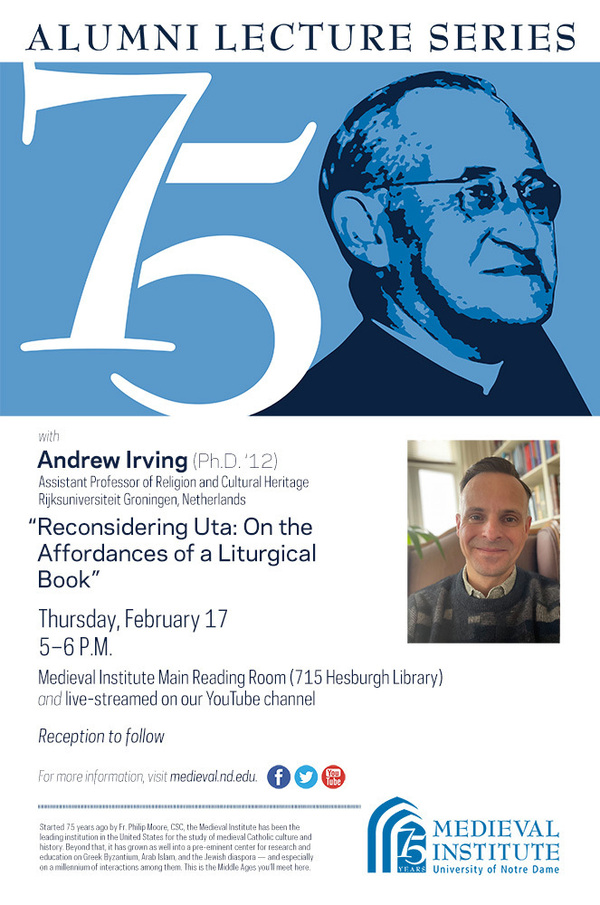
Celebrate the 75th anniversary of the Medieval Institute with the third in this year's series of alumni lectures. We're bringing Andrew Irving, assistant professor in religion and heritage at the University of Groningen, back to campus.
About the talk: What does a liturgical book do and how does it do it? The Uta Codex, a famous gospel book produced at the Abbey of Sankt Emmeram in the first third of the eleventh century named after its donor, Abbess Uta, has been called "perhaps the most important work of Western Illumination of its day" (Swarzenski 1901). Its complex illumination series and its much reworked treasure box have received extensive scholarly attention (Cohen 2000; Pfändtner & Gullath 2012). What has remained largely absent from analysis, however, is a wholistic consideration of what this astounding book and box was for. On the basis of careful material analysis this lecture will use affordance theory to re-examine the uses of the book, and explore the implications for the description and analysis of liturgical manuscripts more generally.
Andrew Irving is tenured assistant professor of Religion and Cultural Heritage at the Rijksuniversiteit Groningen, Netherlands. His research centers on the production and use of liturgical manuscripts, with a particular focus on manuscripts from Southern Italy. His work has been published in Scriptorium, Archiv für Liturgiewissenschaft, and Bibliologia. Irving studied liturgy at Notre Dame before writing his Ph.D. in the Medieval Institute, on the Eleventh-Century Gospel Books of Montecassino. After a post-doctoral fellowship at Yale's Institute of Sacred Music, he taught church history at The General Theological Seminary (New York) before working W. Martin Bloomer (Notre Dame) for year at the Cologne Centre for eHumanities with on the Digital School Book project tracing the fortuna of the schoolbook text, the Disticha Catonis. That collaboration has since borne fruit in the critical edition of Erasmus' edition and commentary on the Disticha published in the Amsterdam Opera omnia of Erasmus (ADS).
Originally published at medieval.nd.edu.